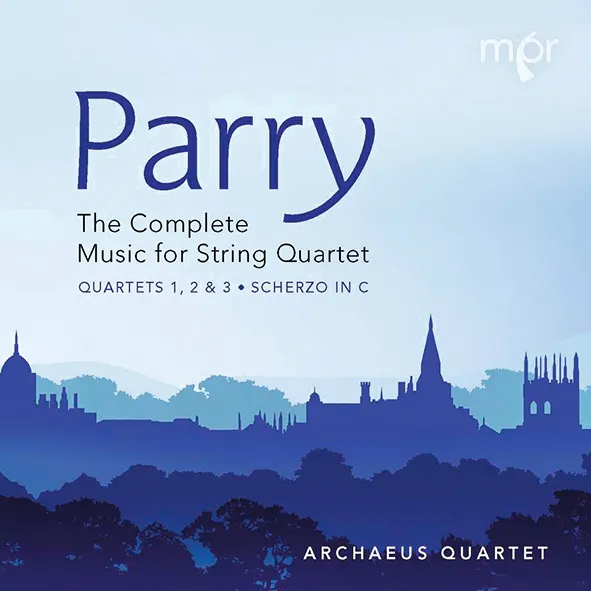
Parry String Quartets Nos 1-3; Scherzo in C Archaeus Quartet MPR MPR102 81:38 mins (2 discs)
Excessive claims on behalf of semi-obscure English repertory should be avoided. Yet the unanswerable quality of the very young Hubert Parry’s First String Quartet will raise an eyebrow or two among those who have tended too often (and I’m not excusing myself ) to regard him as a Victorian choral composer above all else. Parry was an Oxford undergraduate still in his late teens when he penned this remarkable creation – technically the work of a genuine prodigy, and radiating a lucid and engaging personality that combines the music’s obvious models (Beethoven particularly, Mendelssohn also) with a voice that’s very much Parry’s own. A connection with Dvořák’s freshness of manner seems to be present – except that at this date (1867) Dvořák was a young and unknown Bohemian composer whose music Parry cannot possibly have heard.
The Second Quartet, completed a year later, has an element of self-conscious earnestness that doesn’t always convince; the naturalness of the slow movement’s pastoral style is much more appealing. While the undated and equally fine Scherzo in C sounds as if it belongs to the same period, the more ambitious Third Quartet, first performed in 1880, shows Parry now engaging with Wagner’s chromatic idiom. The Archaeus Quartet favours a quite lean collective sound, very different from the turbocharged sumptuousness of much of today’s quartet-playing, and is likeable and convincing in the earlier works. Unfortunately the Third Quartet’s technical demands have the players sounding more stretched, particularly regarding tuning, than one would expect at this level.
Malcolm Hayes